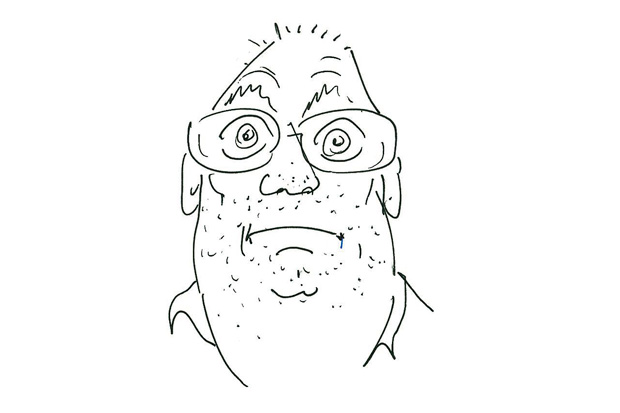I can see the London Eye from my hotel room, but for a panicky, hungover moment this morning I thought I was still in Australia, the voice coming out of my radio alarm being that of Natalie Bennett, the Sydney-sider who is boss of the UK Greens. While I was busy in the pub last night the sartorially-challenged Ms Bennett took part in a live TV election debate, and by all accounts acquitted herself quite well. At T-minus-less-than-two-weeks I’m sure she’s hoping this will expunge the collective memory of the radio appearance she made in February at the start of her campaign. If you want to know why that went viral make yourself a cup of tea and google ‘worst interviews in British political history’.
Along with the other four party leaders in the debate our Natalie tut-tutted over David Cameron’s decision not to take part, but his absence almost certainly met with the approval of another Australian. Readers may remember Lynton Crosby as the strategist behind two successful John Howard election campaigns. Since performing a similar service for Boris Johnson in the last London mayoral race he’s been embraced by the Cameroons, and the Svengali-like influence he’s said to enjoy in Downing St. these days has led to him being described as ‘a master of the dark political arts’ in papers like the Guardian. The tabloids prefer the cuddlier ‘wizard of Oz’, although it has to be said this is also the name they give to every half-decent bowler, scrum half and pastry chef who gets off a Qantas flight.
Even parties with no Aussie in their senior ranks are not free of antipodean influence. The continuing popularity of Nigel Farage’s Ukip, not to mention the human tragedy playing out in the Mediterranean, has forced everyone else to at least talk about immigration, and in the absence of any effective European model at least three other parties are now muttering about ‘an Australian-style points-based system’. But only Ukip has had the guts to enshrine this in its manifesto, since the introduction of such a system would be incompatible with a keystone principle of EU membership.
When I left England in the mid-eighties the only Australian content here was Neighbours and Home and Away – and back then a lot of people thought even that much was too much, not least because of the way British teenagers were starting to end their sentences? A quarter of a century on, both are still rating healthily, as are a swarm of fly-on-the wall reality shows set in Sydney airports, restaurants and veterinarian practices. And homesick Aussies can also wallow in more expensively produced prime-time fodder on an almost nightly basis. Coast Australia – the couch potato alternative to selling the house and buying a campervan – is a big hit, and last night I saw the first episode of Banished, a BBC drama series set in a NSW penal colony in 1788. I was going to call it a glossy production, but given the authentic 18th century filth coating every square inch of the set and cast that hardly seems right. If you don’t mind a male lead with ears that stick out like taxi doors after the passengers have done a runner, you’ll enjoy it.
Anzac Day doesn’t usually get more than a passing mention in the British media, but this one being the 100th anniversary it’s everywhere you look. Thanks largely to Peter Weir’s masterpiece most poms tend to think of Gallipoli as exclusively Australian property (they forget about the Kiwis), so it has come as a surprise to many to learn that in purely numerical terms Britain and France suffered much greater losses there. Over dinner a friend tells me about a trip he made last year to the scene of another, almost equally costly British military exercise, the Normandy landings. The guide who showed him the five beaches where so many allied servicemen died told him he’d had a group of young Aussies through the previous week, and that at the end of the tour one of them had asked him if he had time to show them Gallipoli, too.
To the British Museum for the opening day of Indigenous Australia; enduring civilization. As I have been writing a comic novel about the Australian art world on and off for the past three years I had told myself this would be research, but there was, of course, nothing very comical about it. Since most of the exhibits date from the earliest days of white settlement or before there’s also not much of what many visitors will probably be expecting to see; the dotscapes which have become such a staple of the international art market in the last twenty years. Misleadingly in my view, the poster advertising the show features just such a canvas, so as someone who has sometimes struggled to distinguish aboriginal painting from gift-wrap I was pleased to find the bulk of the exhibition much more accessible and, ergo, interesting. Jonathan Jones of the Guardian, on the other hand, would have liked to see more dots, and found the experience ‘deeply unsettling’ and ‘savagely ironic’. ‘One of the saddest works of art here is a painting by Albert Namatjira,’ he writes in his achingly PC review, the sad part being that it is ‘painted in a completely European style.’ The work in question is a small but technically accomplished landscape which a European watercolourist of any period would be proud of. It’s possible, I suppose, that given a choice Albert Namatjira would have preferred to spend his life reproducing the Dreaming on bark strips, and that he only turned to figurative representation to ingratiate himself with his colonial betters. It seems to me at least as likely that he saw where the money was, taught himself how to do it, and beat the white blokes at their own game. Call me old-fashioned, but what’s sad about that?
Got something to add? Join the discussion and comment below.
Get 10 issues for just $10
Subscribe to The Spectator Australia today for the next 10 magazine issues, plus full online access, for just $10.
You might disagree with half of it, but you’ll enjoy reading all of it. Try your first month for free, then just $2 a week for the remainder of your first year.















Comments
Don't miss out
Join the conversation with other Spectator Australia readers. Subscribe to leave a comment.
SUBSCRIBEAlready a subscriber? Log in